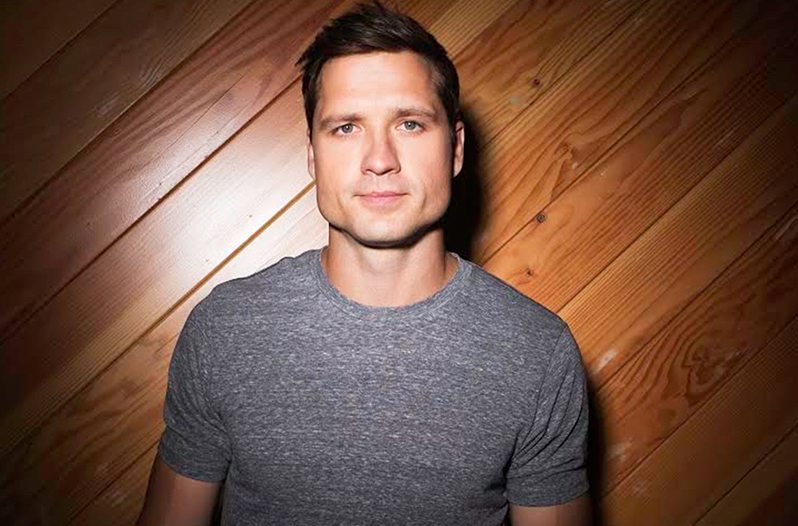After the success of his breakout single "You Broke Up With Me," Walker Hayes released new album boom. a little over a month ago. And, no surprise, it immediately ruffled feathers among the country traditionalist faithful.
Videos by Wide Open Country
Country bloggers, in particular, went in on Hayes. One claimed Hayes is taking the "title of worst thing to ever happen to country music." Another says artists like Merle Haggard and "even the more modern-sounding Troy Gentry are all rolling over in their graves."
Several went so far as to defy mathematics and give the album a negative 1 out of 10. The reliably verbose Saving Country Music called it "The Worst Album In 'Country Music History" before launching into one of the most graphic, thinly veiled attempts at satire I've seen in music literature in a long time.
So that begs the question: Why Do People Hate Walker Hayes So Much?
As disappointing as it is, the answer is simple: people hate Walker Hayes because Walker Hayes sounds different. That's all it is. And what a boring reason to hate someone.
It's the Sam Hunt hate syndrome. Plenty of people compare Hayes to Hunt, but that's as lazy as comparing both of them to Conway Twitty, C.W. McCall or Johnny Cash just because they all had a tendency to talk-sing in their songs.
And Hayes does talk-sing. A lot. Sometimes it lands perfectly, like on "Craig" — a song that even the most bitter of bloggers reluctantly admits carries at least some weight to it.
Other times, Hayes' delivery grinds on just a little too droll. "Dollar Store" finds Hayes embellishing his laidback delivery to "uncool white guy" proportions.
But anybody who carefully listens to boom. — who really takes the time to listen to the production, the themes, the nuance, cannot *possibly* conclude that it sounds like Sam Hunt, or anything else in, not just country music, but pop music in general. Which, again, is why they hate it. They want their country music predictable.
That ain't country
One of the most tiresome arguments that keeps popping up every time somebody does something different under the country music umbrella is that the music "isn't" country. We could unpack that concept for days.
A quick refresher of artists who have been called "not country" throughout their careers: Johnny Cash, Dolly Parton, Waylon Jennings, Garth Brooks, Shania Twain, Sturgill Simpson... you get the point.
There's a very real fear among those resisting progressive country's mainstream success. They're worried that when people start rapping and whistling in their songs and calling it country music, that country music is somehow dying.
And yet here we are, with country music more diverse and commercially successful than ever. Maybe, just maybe, country music isn't about cowboy hats and fiddle as much as it is about connecting with the audience. And maybe, just maybe, Walker Hayes' audience isn't traditionalist country music bloggers.
And that's precisely why "You Broke Up With Me" became a hit. Younger fans resonate with the sentiment. The song is actually about getting dropped from a record label and then bouncing back. But he chose to use his personal story as a heartbreak metaphor that's more relatable.
If you don't like the way Hayes sings or the way the production sounds, that shouldn't stop you from appreciating the way he writes. Take the chorus to "Beer In The Fridge": There's a beer in the fridge/last of twelve/soul survivor of my last all nighter/back of the bottom shelf/it's going to be there in the morning/even though you won't/you're the reason I quit drinking/and the reason I want to get drunk
If that's not the definition of the famous saying that "country music is three chords and the truth," nothing is.
Context is key
Hayes' story is inspiring to any musician. A 38-year-old father of six (soon to be seven), Hayes lost his record deal and was working at Costco as recently as last year to support his family. He built a little studio in a storage shed behind his publisher's office and started writing for himself.
Now, he's on an independent label and among the early crop of country artists to utilize Spotify to build an undeniable buzz (similar to Maren Morris and Luke Combs). He's also making the exact kind of music he wants to make, and fans clearly resonate with it.
And it really pisses a few people off. So you know he's doing something right.


